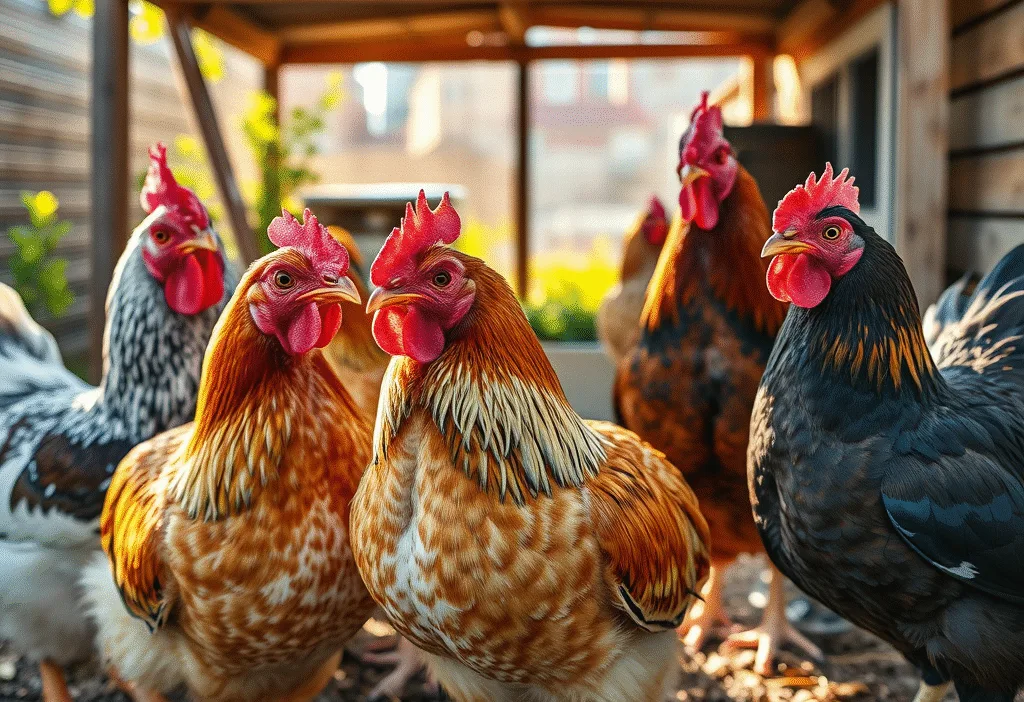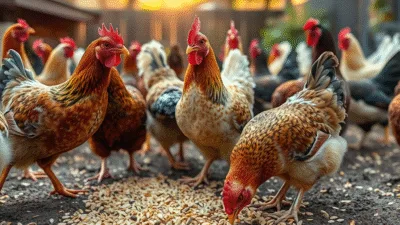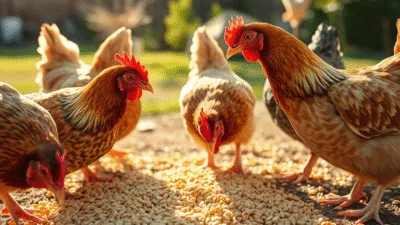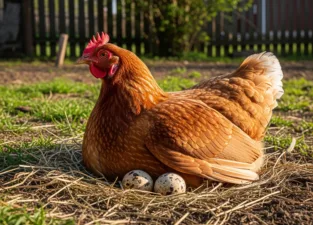Raising chickens in urban areas is growing in popularity, and more people are choosing heritage breeds over commercial hybrids and for good reason. These time-tested birds are hardy, productive, and often better suited for smaller backyards than high-strain production breeds.
In this guide, we’ll explore the best heritage chicken breeds that lay well in urban environments, how to keep them happy in limited space, and why heritage birds are a smart long-term investment for backyard flocks.
What Are Heritage Chicken Breeds?
Heritage breeds are traditional chicken breeds that were bred before the rise of industrial agriculture. According to The Livestock Conservancy, to qualify as “heritage,” a chicken breed must:
- Mate naturally
- Have a long, productive outdoor lifespan
- Grow at a natural rate (not fast-tracked like commercial hybrids)
- Be recognized by the American Poultry Association
Heritage breeds tend to be more disease-resistant, better foragers, and adaptable to different climates, making them ideal for urban and suburban homesteaders looking for sustainable poultry options.
Benefits of Heritage Chickens in Urban Settings
- Quieter and calmer than commercial layers
- Adapt well to small coops or mobile tractors
- Better long-term productivity (not just short-term egg bursts)
- Beautiful, unique feather patterns
- Contribute to conservation efforts of rare breeds
If you’re allowed to keep hens (not roosters) in your city, heritage breeds are often more compatible with neighbors and ordinances.
Best Heritage Chicken Breeds for Urban Egg Production
1. Plymouth Rock (Barred Rock)
Eggs per Year: 200–250
Temperament: Friendly, calm
Climate Tolerance: Cold-hardy
These gentle birds are easy to manage and perfect for beginners. Plymouth Rocks handle confinement well and are quiet, making them a top choice for backyard setups.
2. Rhode Island Red
Eggs per Year: 250–300
Temperament: Hardy, active
Climate Tolerance: All climates
One of the best all-around layers among heritage breeds. Rhode Island Reds are low-maintenance, productive, and do well in both small coops and free-range setups.
3. Delaware
Eggs per Year: 200–250
Temperament: Curious, friendly
Climate Tolerance: Cold and heat tolerant
Delawares are a lesser-known heritage breed but are excellent for urban keepers. They are relatively quiet, friendly, and have good egg production without needing a lot of space.
4. Sussex
Eggs per Year: 220–280
Temperament: Gentle, inquisitive
Climate Tolerance: Adaptable to most climates
The Sussex breed is known for being docile and easy to handle, which is ideal for small flocks in urban yards. They enjoy foraging and lay light brown eggs steadily.
5. Australorp
Eggs per Year: 250–300
Temperament: Quiet, sweet-natured
Climate Tolerance: Cold-hardy
Originally from Australia, Australorps are famous for their egg-laying ability and quiet nature. They thrive in smaller coops and are great for close neighbors due to their low noise levels.
6. Orpington (Buff Orpington)
Eggs per Year: 180–250
Temperament: Docile, affectionate
Climate Tolerance: Excellent in cold weather
Buff Orpingtons are ideal for families and urban flocks. They’re large, fluffy, and peaceful and while they lay slightly fewer eggs than some others, their temperament makes them perfect for tight quarters.
Tips for Raising Heritage Chickens in the City
1. Know your local laws:
Always check city ordinances. Many urban areas allow hens but restrict roosters due to noise.
2. Use a predator-proof coop:
Urban predators include raccoons, opossums, and even neighborhood dogs. Use hardware cloth and secure latches.
3. Optimize space:
Choose dual-purpose breeds that tolerate confinement. Mobile chicken tractors and vertical perches help maximize small backyards.
4. Feed quality matters:
Heritage breeds do well on standard layer feed but benefit from foraging and kitchen scraps. Supplement with oyster shell and grit as needed.
5. Make it neighbor-friendly:
Pick quieter breeds (Australorp, Orpington) and keep the coop clean to avoid odor complaints.
Why Heritage Breeds Are a Smart Long-Term Choice
While commercial hybrids may lay more eggs in their first 1–2 years, they tend to burn out quickly and may have more health issues over time. Heritage breeds:
- Lay longer over their lifespan
- Are more resilient to illness
- Often go broody, making natural chick raising easier
- Provide a sense of tradition and sustainability
If you’re building a flock to last, heritage chickens offer consistent eggs and lasting value.



